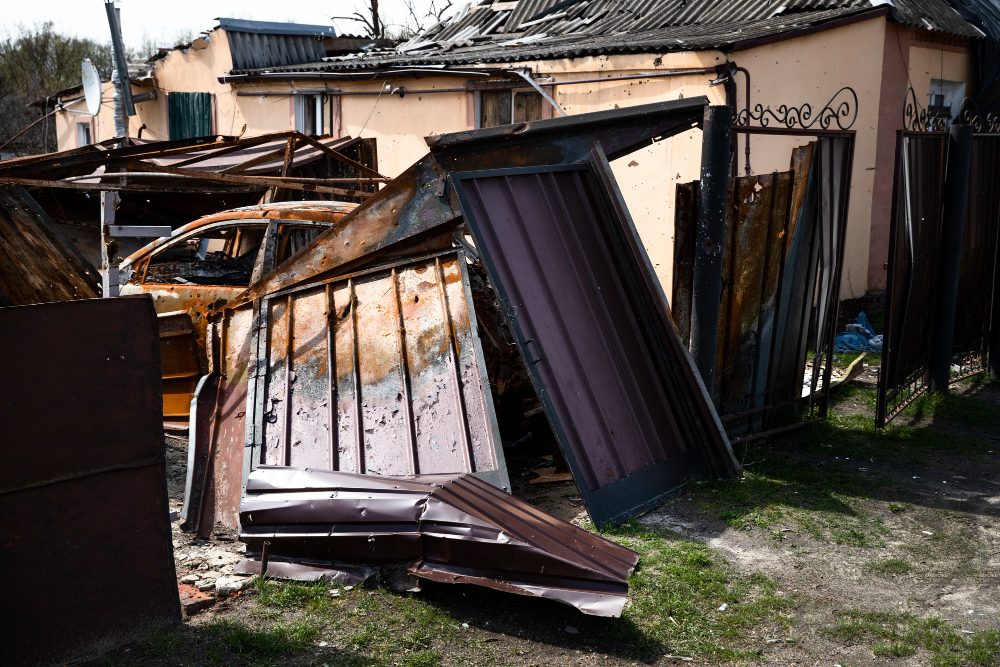
Navigating Weather Damage Insurance Claims: A Comprehensive Guide
October 28, 2024 8:35 am Weather damage can wreak havoc on properties, bringing with it a wave of stress and uncertainty for homeowners and businesses alike. Understanding how to navigate the insurance claims process for weather-related damages is crucial for securing the compensation needed to restore and rebuild. This comprehensive guide delves into the intricacies of weather damage insurance claims, offering valuable insights and practical advice for policyholders.Understanding Weather Damage Insurance
Weather damage insurance is designed to provide financial protection against losses resulting from various weather events. These events can include hurricanes, tornadoes, hailstorms, floods, and severe windstorms. Most standard homeowners and business insurance policies cover a range of weather-related damages, but it’s essential to understand the specifics of your policy and any potential exclusions.Common Types of Weather Damage
Hurricane Damage: High winds, heavy rains, and storm surges can cause extensive damage to properties. Common issues include roof damage, flooding, and structural harm.Tornado Damage:
Tornadoes can cause severe destruction, often resulting in the complete loss of buildings. Debris impact, wind damage, and water intrusion are typical concerns.Hail Damage:
Hailstorms can damage roofs, siding, windows, and vehicles. The extent of damage often depends on the size and intensity of the hailstones. Flooding can result from heavy rains, storm surges, or overflowing rivers. Water damage can affect the foundation, walls, flooring, and personal belongings. Windstorm Damage: Strong winds can damage roofs, windows, and outdoor structures. Flying debris poses additional risks.Steps to Take After Weather Damage
1. Ensure Safety:
Your safety and the safety of your family or employees should be the top priority. Evacuate the premises if necessary and avoid any immediate hazards such as downed power lines or structural instability.2. Document the Damage:
Thoroughly document the damage by taking photographs and videos. Make a detailed inventory of all affected items, including their approximate value. This documentation will be vital when filing your claim.3. Mitigate Further Damage:
Take reasonable steps to prevent further damage to your property. This may include covering broken windows, placing tarps over damaged roofs, or moving undamaged items to a safe location. Keep receipts for any expenses incurred during this process, as they may be reimbursable.Filing a Weather Damage Insurance Claim
1. Review Your Policy:
Familiarize yourself with your insurance policy to understand what is covered and any exclusions or limitations that may apply. Note the deductible amount and any specific requirements for filing a claim.2. Contact Your Insurance Company:
Notify your insurance company as soon as possible to initiate the claims process. Most insurers have a 24-hour hotline for reporting claims. Provide them with a detailed description of the damage and be prepared to share the documentation you have collected.3. Meet with the Adjuster:
The insurance company will send an adjuster to assess the damage and determine the amount of compensation you are entitled to. Accompany the adjuster during their inspection to ensure all damage is noted and to answer any questions they may have.4. Obtain Repair Estimates:
Get multiple estimates from reputable contractors for the repair or replacement of damaged property. This will help you ensure that the insurance payout is sufficient to cover the necessary work.5. Keep Detailed Records:
Maintain a detailed record of all communications with your insurance company, including phone calls, emails, and letters. Keep copies of any documents submitted or received.Understanding the Claims Process
The claims process can vary depending on the extent of the damage and the complexity of the claim. Here are some key points to keep in mind: Timelines: Insurance companies are required to respond to claims within a certain timeframe, which varies by state. Be aware of these timelines and follow up if necessary.Dispute Resolution:
If you disagree with the adjuster’s assessment or the settlement offer, you have the right to dispute the claim. This may involve providing additional evidence or hiring an independent adjuster for a second opinion.Additional Living Expenses:
If your home is uninhabitable due to weather damage, your policy may cover additional living expenses (ALE) such as hotel stays, meals, and other necessities. Keep receipts for any expenses incurred.Tips for a Smooth Claims Experience
Stay Organized:
Keep all documentation, receipts, and correspondence organized and easily accessible.Be Persistent:
Follow up regularly with your insurance company to ensure your claim is progressing and to address any questions or concerns.Seek Professional Assistance:
Consider hiring a public adjuster or an attorney if you encounter difficulties with your claim. These professionals can advocate on your behalf and help secure a fair settlement.Communicate Clearly:
Provide clear and concise information to your insurance company and adjuster. Avoid making exaggerated or false claims, as this can complicate the process and potentially lead to denial of your claim.Conclusion
Navigating weather damage insurance claims can be a daunting task, but with the right knowledge and approach, you can ensure a smoother and more successful experience. Understanding your policy, documenting the damage, and following the necessary steps are crucial to securing the compensation needed to restore your property. Remember to stay organized, be persistent, and seek professional assistance if needed. By taking these steps, you can effectively manage the claims process and focus on rebuilding and moving forward after a weather-related disaster. for more information: CONTACT MIKE ACERRA Tags: Weather Damage Insurance ClaimsCategorised in: Claims FAQs, Commercial, Fire Damage, Individual Service, Insurance, Public Adjuster, Residential, Services Overview, Storm Damage, Underpaid Claims
This post was written by Trishala Tiwari

Comments are closed here.